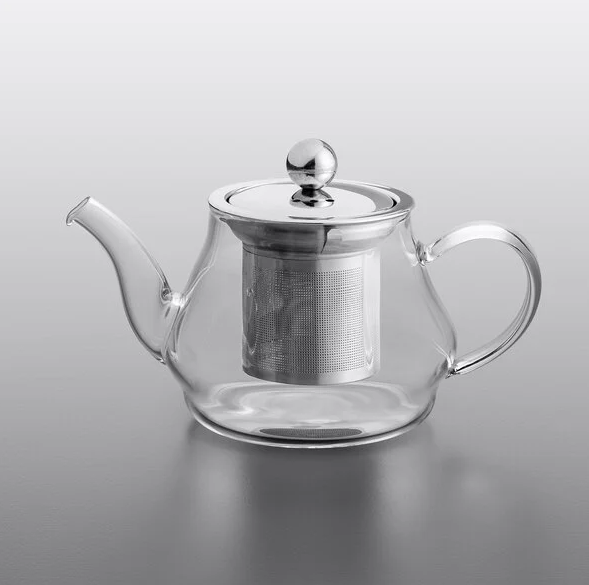Ayurvedic Tea: Health Benefits, Caffeine, History, Flavor, etc.
Late summer is the perfect time to get ready for the challenges of the upcoming colder season. Even if you are among the lucky ones and still have a few more weeks of hot weather to enjoy, you can start preparing now. Welcome fall ready, both physically and mentally. Ayurvedic teas could be a good choice for both.
The history of Ayurveda
Ayurveda is a traditional Indian medicine focused on healing the whole body. It’s assumed to be around for a few thousand years, still as important as it was in the past. These days Ayurveda is a choice of many people around the world. Just like the Traditional Chinese Medicine, it brings in focus balance, and understanding how an imbalance in body and mind can cause different health issues. Modern medicine mostly focuses on dealing with a problem, rather than the source of the problem or way to prevent it. For example, nutritionists are still not as important in western medicine as the science of eating is in Ayurveda. Ayurveda has a very different approach. What you ingest, how you ingest, when you ingest are all important parts of creating balance. Welcoming Ayurveda into your life might be a good way of trying to achieve balance in personal, professional and social life and staying healthy, happy and stress-free. Fruits, roots, herbs and spices are an important part of this journey. Ayurveda supports seasonal cleansing and adapting to seasonal changes by changing diet and lifestyle.What is an Ayurvedic tea?
There are many types of tea in Ayurveda, each with its own benefits. Most of them are herbal, but they can include real tea too. For example, warming Chai tea, a warming winter drink, it’s so common and widely spread we rarely think of its benefits while enjoying delicious flavor. Ayurvedic tea is almost always a blend of different ingredients, each having its own properties and working together to offer relaxation, enhanced immunity, detoxication, etc. Interestingly, Ayurveda doesn’t promote one herb for one problem. Instead, it uses a more personalised approach to decide which herb would have the most benefits for one person.Pitta, Kapha and Vata
Ayurveda recognizes three energies within the human body–Pitta, Kapha and Vata. Those energies are manifested in body constitution and temperaments and are all presented in one person. In a very simple words, stressful situations or events may change the balance of energies, causing health issues. You can achive balance with herbs, rituals, taking care of your body and mind from the inside and out.Adaptogens in Ayurveda
The most common and important ingredients of Ayurveda are adaptogens, or herbs and roots with the ability to reduce stress naturally. Adaptogens may help you adapt to new seasons, new stressful situations or events more easily. Ashwagandha or Indian ginseng is the most popularly used adaptogen in Ayurveda used for treating stress and increasing stamina. Research showed it may be useful in “neurodegenerative diseases such as Parkinson’s, Huntington’s and Alzheimer’s diseases.[1]” Tulsi or Holy Basil, another important and widely used adaptogen has a basil like flavour and could help with treating “lifestyle-related chronic diseases,[2]” including psychological stress, diabetes and metabolic syndrome[3]. Sweet licorice is an adaptogen too, and important root that may be used for calming properties.Other popular ingredients in Ayurvedic tea
Other important and common ingredients are cardamom, cloves, pepper, turmeric, moringa, cinnamon, cumin seeds, blackthorn, hop, haritaki, and hundreds of other herbs mostly rarely used in Western countries.Health benefits of Ayurvedic tea
Benefits of Ayurvedic teas are obviously enormous and include a whole range of benefits, including enhancing the quality of life. Each herb has its own benefits. For example, high blood pressure can also be treated with a blend of Ayurvedic herbs. Garlic, ashwagandha and cardamom may potentially be used for this problem. Wellness blends are considered safe and target one of the following areas – stress-relief, detox, relaxation and focus. They are mostly created to target one dosha, like PITTA tea, or to offer general relaxation – like Shanti Herbal. Kapha tea often contains ginger, Vata teas calming and relaxing herbs, while Pitta has cooling herbs and flowers.Caffeine content of Ayurvedic tea
Ayurvedic herbal tea is usually caffeine free. They mostly exclude plants like guarana or yerba mate which contain caffeine, although not completely. Blends with real tea like Chai contain caffeine. Check the ingredient list of each Ayurvedic tea before purchasing, to make sure all ingredients are safe for you. If you are buying specialised Ayurvedic herbs, make sure to always consult your healthcare provider before including them into your daily diet. Although wellness Ayurvedic tea is safe, combining different herbs with modern drugs might be dangerous.Our range of Ayurvedic tea:
- Shanti Herbal with tulsi, saffron, fennel seeds and licorice
- Holy Detox with tulsi, rosehips, spearmint, linden flowers and lemon myrtle
- Clari’tea with tulsi, ginkgo, white sage, gotu kola, lavender and rosemary
- Vedic (Healer) with ashwaghanda, cardamom, ginger, pepper and cinnamon
- PITTA Ayurvedic tea with chrysanthemum, raspberry leaves and tulsi
Disclaimer: This article is for informational purposes only. It’s not intended to replace medical advice, diagnosis or treatment. Every person is different and may react to different herbs and teas differently. Never use teas or herbs to treat serious medical conditions on your own. Always seek professional medical advice before choosing home remedies.
References
[1] https://www.ncbi.nlm.nih.gov/pmc/articles/PMC3252722/ [2] https://www.ncbi.nlm.nih.gov/pmc/articles/PMC5376420/ [3] https://www.ncbi.nlm.nih.gov/pmc/articles/PMC5376420/
More from:
SLL




Leave a comment